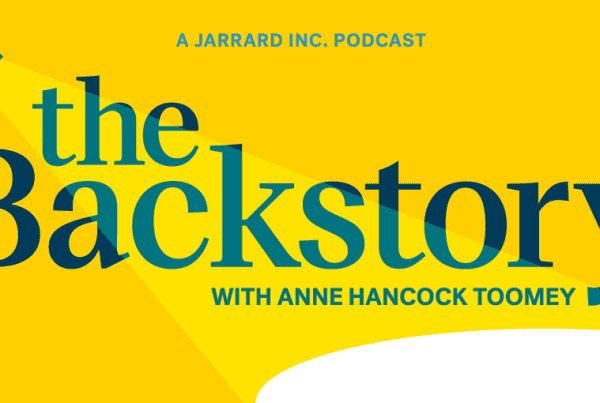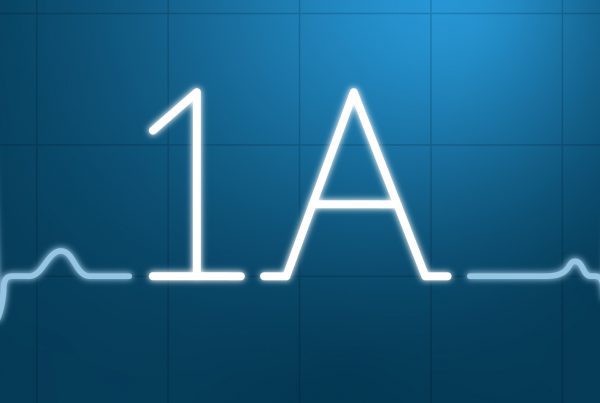The Big Story: Discovering healing through storytelling – KevinMD
“It is an injustice to our system of health care if the ability to tell one’s story and have it acknowledged is thought to be a trivial act. The world around us seems so at odds, to the point of appearing heartless. Let us restore the act of compassion and empathy in our interactions with our fellow human beings and most importantly, within the healing profession.”
The loud message of listening
By David Jarrard
3-minute read
Listening is the toughest work.
Listening well is an act of rebellion.
Listening thoughtfully is an act of insurgency against our high-strung, high-pressure environment, with its overweighted bias for action, for everyone to be doing something – right now – that advances the ball, gains some ground, moves the needle.
Calendar invites stack up like a game of Tetris you simultaneously win and lose as you do more with less to beat a clock that won’t stop.
Slowing down to listen – and it does require slowing down – can feel inefficient and antithetical to this frenzied moment. But it may be the most important work before you.
Listening well will make almost everything else on your to-do list happen better, faster, smarter.
One reason you conduct surveys and focus groups and host brainstorms and town hall meetings is that you appreciate the connection between listening well and building trust.
And do we ever have a trust issue. The assumptions of neglect and bad intent infect every corner. Politics. Education. Media. Business. Healthcare. Gallup said last month that the number of Americans expressing “a lot” of confidence in the U.S. medical system has dropped from 44 percent to 34 percent in 24 months. Less of a trend, more of a nosedive.
People in trusting relationships can take risks, move faster, be more creative, endure greater challenges longer. It’s true for citizens, families…and that nursing unit on the third floor. The less trust, the less potential, the slower the gears of change; what’s possible becomes small and tenuous.
Sound familiar?
Have we lost the art of listening well or simply misplaced the value of it?
Consider the life’s work of Rita Charon, MD, professor at Columbia University College of Physicians and Surgeons and founder of the “narrative medicine” movement, which calls on clinicians to listen deeply to their patients as a fundamental to their healing work.
“Narrative medicine’s premise is that the account a patient gives about their illness is just like a story you might find in a novel: It has a plot, characters, metaphors. Even its momentary silences are telling,” says Vox.
“That might sound like a bizarre or wasteful use of their time, but consider the similarities between reading a novel and listening to a patient. Both require you to pay exquisite attention, engaging your sympathy as well as your critical faculties.”
Says Charon: “You have to be so present, so alert, with your curiosity so intact. Doctors, like readers, have to take in all the different narratives and resist the urge to immediately say which is right with premature certainty. That’s arguably the opposite of what modern medicine has become.”
It’s good medicine and good listening lessons for all of us in healthcare.
After all, it’s not just patients who feel unheard. Nurses do. So do physicians. And administrators, managers and directors. There’s not a title band or a person without a story to tell.
We all are in danger of the curse of theatrical listening – when you act like you’re listening but are mostly interested in appearing to have done it. Like a bad reporter, the story’s already written; we’re listening for confirmation. You don’t think your audience can sense staged listening? They can.
Our takes on listening well? Here are four…or maybe it’s hear these four:
- Listen for stories. You hear the words, but you’re listening with your other senses, too. You’re taking in the body language, the tone, the cadence, the mood, the confidence, the fear. Together, it’s assembled in your mind as a story, as context. Like reading a good novel, good listening is immersive.
- Look at the numbers but hear people. Surveys and other data can be a vital element of listening, but they’re always incomplete. Decimals and percentages can only get you so far – and sometimes in the wrong direction. All facts require translation to become meaningful, after all. Good data informs but does not replace the work of listening well.
- Set yourself aside. Temporarily set aside your plans, filters, quick “What about…” objections and mental distractions so that you are absorbing before judging. There will be discernment to come. Every speaker is not a trustworthy narrator, but every story may have valuable information you will miss if you are not present.
- Listening is a leadership message. The act of listening well, the work of engagement and conversation, is itself an act of leadership. It’s an opportunity to learn, it’s the foundation of organizational creativity, it’s a demonstration of leadership. The antithesis is also true: To not listen – to not round, to not meet – is a message, too.
This is hard, often little-recognized work. Although it is the seed for growing consensus, creating community and building trust, it’s rarely the focus of professional development goals or performance reviews. You’ll get little applause for it… Except, maybe…From those finally being heard.
Contributors: Emme Baxter, David Shifrin
Image Credit: Shannon Threadgill




